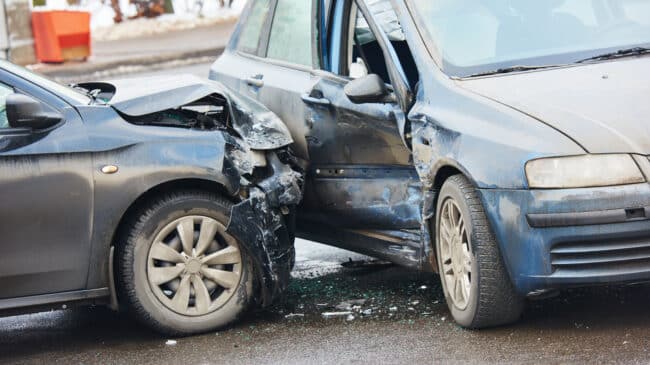In some ways, anti-auto and anti-suburb activists have been winning much of the messaging war over transportation and land use. They have a talent for coming up with new phrases to give a positive spin to things they like (e.g., “smart growth,” implying that anything but high density is dumb and using “urban sprawl” to describe the suburbs that most Americans prefer living in). Such messaging and framing take place all the time in politics and public policy. In transportation, it has also been underway for years regarding how traffic accidents are described. The language surrounding traffic accidents actually has origins in epidemiology and medical journals, dating all the way back to the 1960s.
At the time, talking about traffic accidents was proposed in order to focus people’s attention on the idea that traffic crashes (or at least many of them) are preventable, not the inevitable side-effect of cars and roadways. The word “accident” means something that was not intended to happen. When a terrorist deliberately plows into a sidewalk full of people, that is a deliberate action, not an accident. But if a motorist loses control of a car and it runs into something or someone, that was not a deliberate action. It might have been reckless and irresponsible, and the driver may well face charges, but it was not deliberate.
Today, some activists are trying to change the terminology from crashes to “traffic violence.” When I Googled the term before writing this, I got search results showing, “About 53,000 results (0.49 seconds),” which suggests a healthy number of mentions though there are not enough Google searches for “traffic violence” to even register as a Google Trend. But the term is being pushed in places like the website Streetsblog, which wrote that America perpetuates a “violent transportation landscape” that requires us to shift from calling traffic accidents anything other than violence:
“Since at least 2013, Streetsblog has been using the term ‘traffic violence’ to describe the epidemic of death and serious injuries that has raged on our roadways since the advent of the automobile...Violent systems do not come into existence by accident, and they certainly do not persist by accident. America has collectively chosen, every day, to perpetuate a violent transportation landscape that results in roughly 38,000 preventable deaths every single year. Violence that occurs in the traffic realm is, by definition, traffic violence. A car crash is always a car crash, even if the driver is ultimately found not guilty of criminal negligence. And when we feel a sense of unease saying these words, it is because we have been raised in a culture that has systematically and deliberately worked to shift the blame for that violence onto victims, down to the subtlest workings of the language in the news reports we read.”
Similarly, Sen. Elizabeth Warren has used the term:
Generally, when we refer to violent behavior, we mean deliberate actions, whether aggressive or defensive. Depending on the circumstances, the person acting violently may face legal charges or be found to have been acting legitimately. But typically a mistake while driving is an error, not a deliberate action.
There is no question that injuries and deaths resulting from traffic accidents are tragic. Transportation engineers work hard to develop ways of reducing them, whether it’s by making motor vehicles safer for their occupants, safer for pedestrians and cyclists in the event of collisions, or figuring out where to locate crosswalks and traffic signals. Decisions on highway safety must rely on sound data and engineering trade-offs, no matter how much we might wish that perfect safety could be achieved at zero cost. Vision Zero, which aims to eliminate traffic accidents and deaths, is indeed a visionary aspiration, but one that is unlikely to be achievable in the real world.
George Orwell in his dystopian novel 1984 portrayed a deliberate effort to replace numerous old terms, in order to change how people thought. In the novel, a philologist named Syme brags about replacing Oldspeak with Newspeak, saying, “The whole literature of the past will have been destroyed. Chaucer, Shakespeare, Milton, Byron—they’ll exist only in Newspeak versions, not merely changed into something different, but actually changed into something contradictory of what they used to be. . . . Even the slogans will change. How could you have a slogan like ‘freedom is slavery’ when the concept of freedom has been abolished?”
Orwellians have posited that whoever controls the language controls thought. Those of us in the transportation community should pay attention to and resist efforts to control thoughts by changing the language.
We all want to reduce the number of traffic fatalities, but over-the-top rhetoric that seeks to label traffic accidents as acts of intentional traffic violence isn’t the path to better or safer transportation policy.

